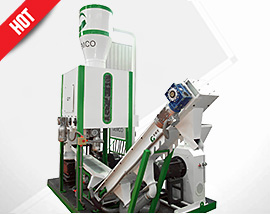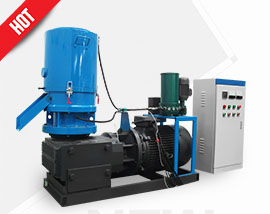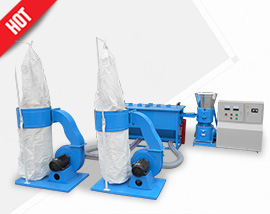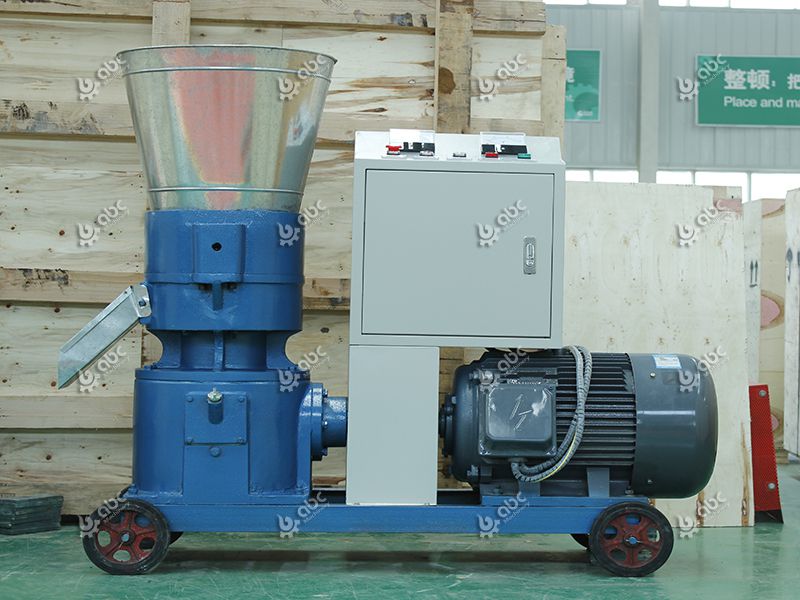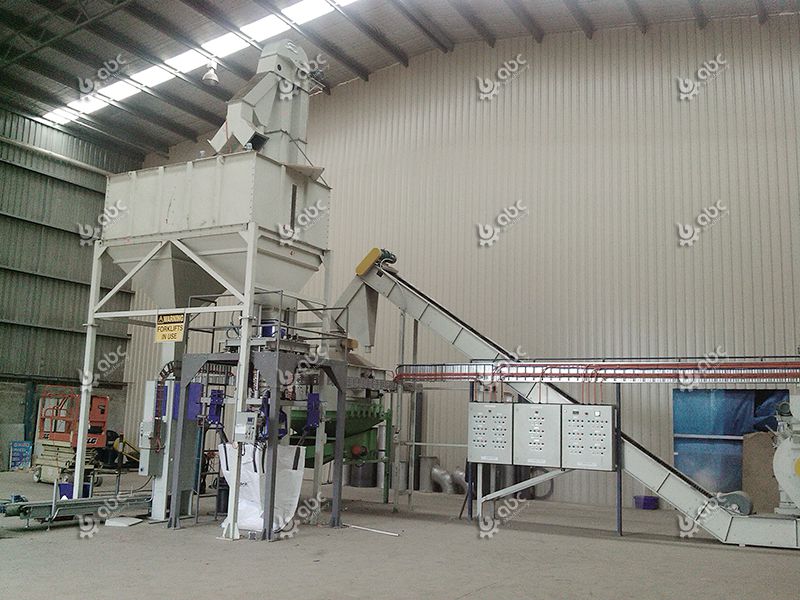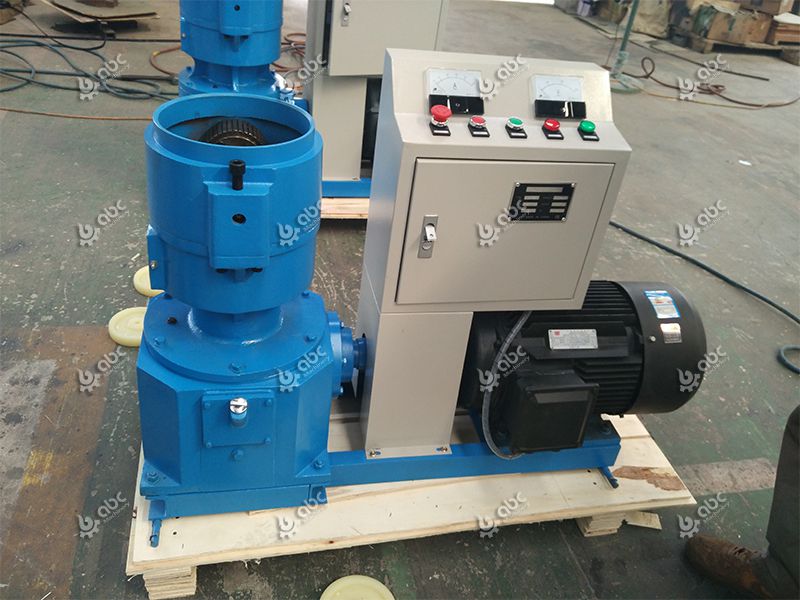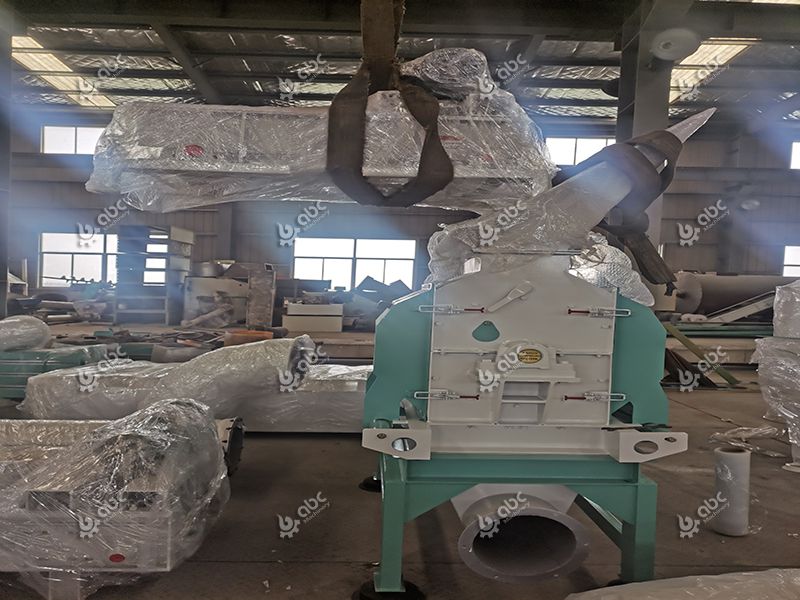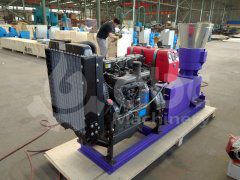1 TPH Cassava Residue Pellet Processing Solution in Nigeria
-
Project Name: 1 Ton/hour Cassava Residue Pellet Production Project for a Large Cassava Starch Plant
-
Country: Nigeria
-
Our Client: Psaltry-International-Company-Limited
-
Project Objective: To collect, dry, and remove impurities from cassava slurry cleaned from the cassava starch plant, mix it with sawdust, and produce cassava waste pellets for use as boiler fuel.
-
Main Equipment: 500 m³/day waste water treatment plant, 1.5-ton/hour rotary dryer, 1-1.2T/Hour Cassava waste pellet production line, one set 3-ton diesel boiler, and two sets of wood pellet boilers.
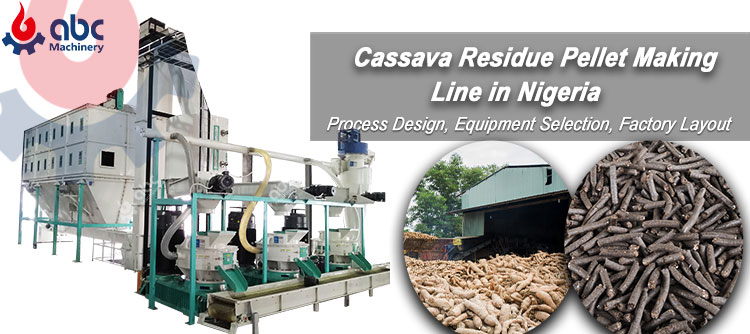
Cost-effective Cassava Residue Pellet Making Line in Nigeria
ABC Machinery's biomass pellet machine and pellet production line have performed excellently in the field of energy solutions. These machines not only efficiently produce biomass pellets but also effectively utilize resources such as waste and agricultural residues, achieving resource recycling, and meeting the modern society's demands for environmental protection and sustainable development.
If you are planning to establish a biomass pellet production plant to process raw materials such as cassava residue, corn stalks, straw, wood chips, bagasse, and waste paper, please feel free to contact us at any time!
Background Analysis: Cassava Waste Pellet Production Project in Nigeria
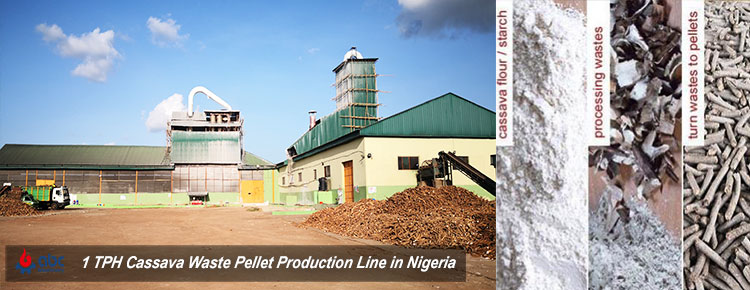
Successful Cassava Starch Production Company in Nigeria
Our Nigerian client operates a comprehensive cassava production value chain, encompassing large-scale cassava cultivation, continuous food-grade starch production, marketing, and sales distribution.
Each day, 200 tons of fresh cassava are delivered by farmers to the cassava starch processing plant. Here, the cassava undergoes washing, crushing, grinding into fine powder, and steam drying in boilers. The processed cassava starch is then packaged in 50 kg bags. This is a well-organized and successful cassava starch production enterprise.
However, the forward-thinking factory investor has noticed some serious issues that need to be addressed urgently:
-
Water Resource Management: With the increase in production capacity, the water usage is gradually increasing.
-
Wastewater & Cassava Waste Treatment: Untreated wastewater is discharged directly, causing pollution to the surrounding environment and resulting in significant losses of water and cassava slurry.
-
Boiler Upgrades: The existing old boilers are insufficient to meet the steam drying process's needs.
Project Design: Cassava Waste Residue Treatment & Wastewater Recycling Process
After on-site surveys and discussions, we provided clients with a comprehensive solution, including equipment selection, production process design, technical support, and other services.
-
Wastewater treatment and recycling:
500 m³ MBR wastewater treatment plant is used, which can treat 500 m³ of wastewater per day, which meets the standards of the Nigerian environmental regulations, can be discharged directly, and can be recycled for cassava washing.
-
Cassava Residue Pellet Production Process:
The main equipment includes a 1 ton per hour cassava waste pellets production line. Through the collection, dewatering, and drying processes, the cassava slurry will be turned into animal feed ingredients or fuel pellets, which will increase the heat value and save costs.
-
3 Tons Biomass Boiler:
Improved the efficiency of the biomass boiler, reduced the number of operators, and increased the starch production capacity to 1,000 tons per month.
ABC Machinery has rich experience and a professional team that can help you fully utilize all cassava waste, peels, and sawdust, economically utilizing them to improve production efficiency!
Project Pictures: 1 TPH Cassava Residue Pellet Production Process On Site
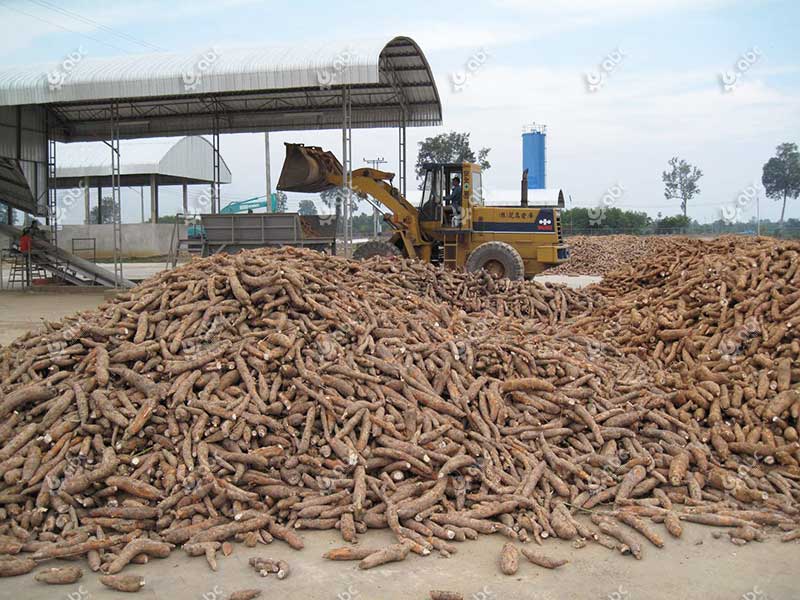
Cassava Raw Materials
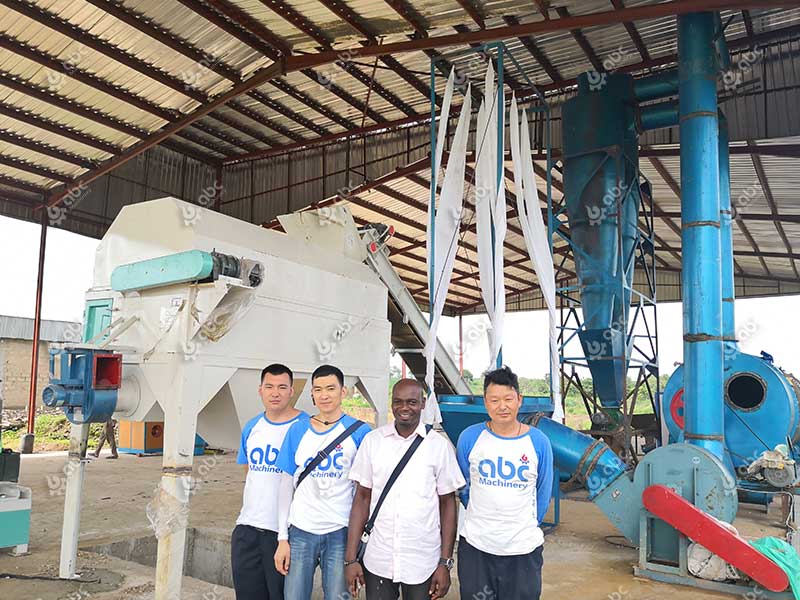
Photo of Cassava Pellet Production Plant
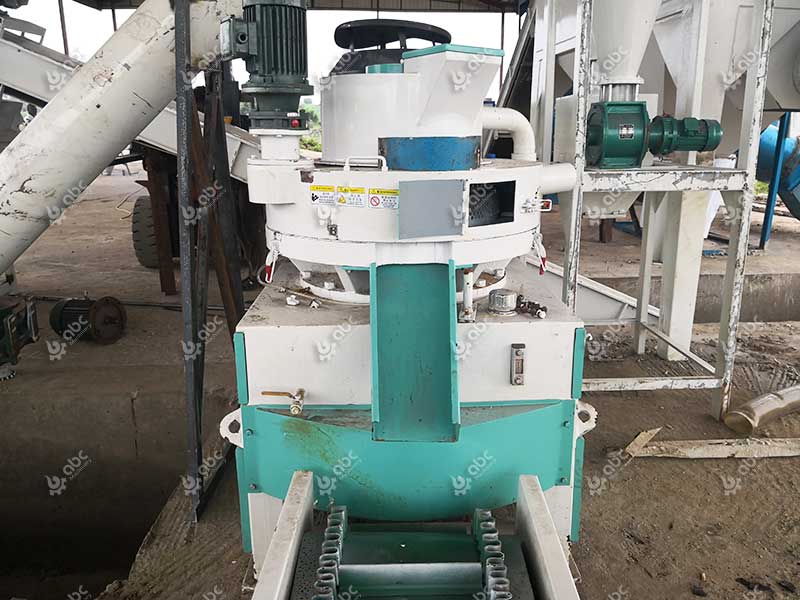
vertical ring die cassava waste pellet processing machine at Factory Price
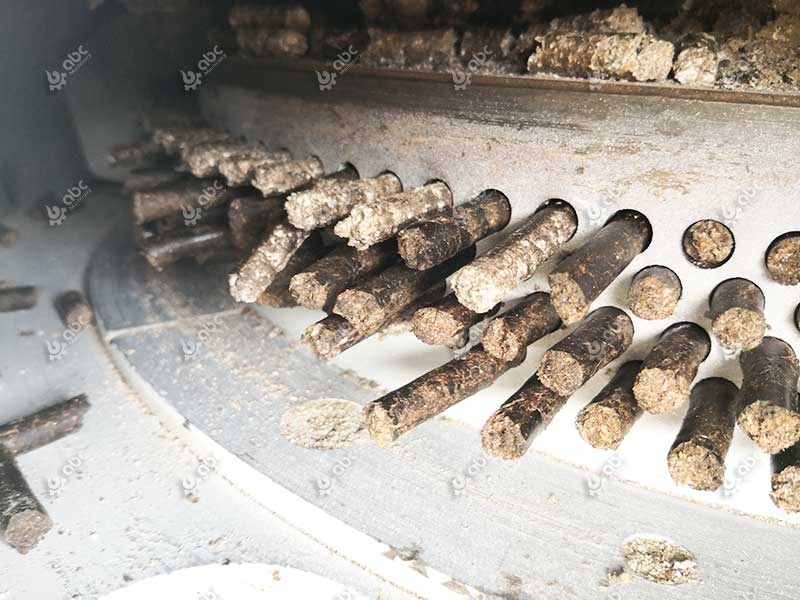
Cassava Residue Pellets Making
Cassava dregs are collected, dehydrated and dried for use as animal feed ingredients or mixed with sawdust to produce boiler fuel pellets. It can be used for boiler combustion in customer's cassava starch production plant. The following is the production process of cassava residue pellets:
1.Raw Material Screening and De-dusting:
To ensure continuous and efficient production, we have a series of equipment in our pellet production line. These include a rotary screen remover to remove oversize materials from the pellets and a strong magnetic iron remover to collect iron from cassava slurry, peels and sawdust.
2.Raw Material Drying Process:
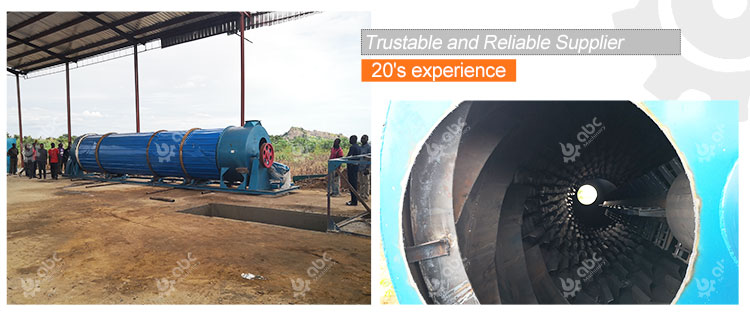
Cassava Waste Drying Machine Built in Nigeria
After collection and de-watering the cassava pomace enters the drying stage. We used a rotary dryer with a capacity to process 1.5 tons per hour to reduce the moisture content of the cassava slurry from 60% to 15%. This process ensures the quality and suitability of the cassava waste residue.
3.Cassava Waste Pellet Manufacturing Process:
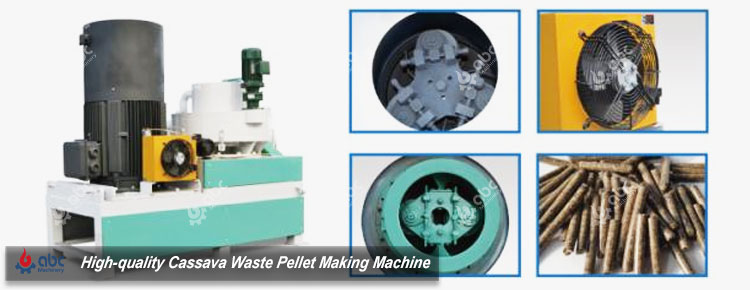
1 TPH Cassava Residue Making Machine for Sale
| Model | Capacity(t/h) | Power (kw) | Die inner diameter (mm) | Moisture of raw material |
|---|---|---|---|---|
| VPM508 | 1-1.5 | 75 | Ø508 | 13~17% |
| VPM510 | 1.5-2 | 90-110 | Ø510 | 13~20% |
| VPM630 | 2-2.5 | 132 | Ø630 | 13~20% |
The dried cassava waste becomes an ideal raw material for making fuel pellets. We mix it with sawdust and mold it through a pelletizer. During the pelletizing process, the calorific value of the pellets can be increased to 4000 kcal, making them an ideal fuel for boilers, replacing fast-growing, low-density wet logs, thus saving the cost of purchasing logs.
Huge Market Potential for Cassava Dreg Pellets in Nigeria
Recently, the biomass pellet production market in Nigeria has a large potential for growth, mainly driven by government policies and increasing demand for renewable energy. Some of the key information about the biomass pellet production market in Nigeria is given below:
-
Supportive government policies: The Nigerian government is committed to promoting the use of renewable energy and has formulated policies and regulations to support the production and use of biomass energy.
-
Increasing energy demand: Nigeria's energy demand is increasing, especially in remote and rural areas, and biomass pellets are attracting attention as a cheap and renewable source of energy.
-
Extensive cassava waste resources: Nigeria is one of the largest producers of cassava in the world, and cassava waste is an important raw material for biomass pellet production in Nigeria.
-
Market Growth Potential: The biomass pellet production market in Nigeria is expected to continue to grow as the use of biomass pellets as an alternative to traditional fuels continues to increase.
This biomass pellet plant project in Nigeria is operating steadily, providing investors with effective solutions to their challenges and delivering substantial returns. Whether you are a startup or have an existing production base, ABC Machinery can tailor the most suitable solution for you. Welcome to contact us for a free quote and more details about biomass pellet production equipment!




